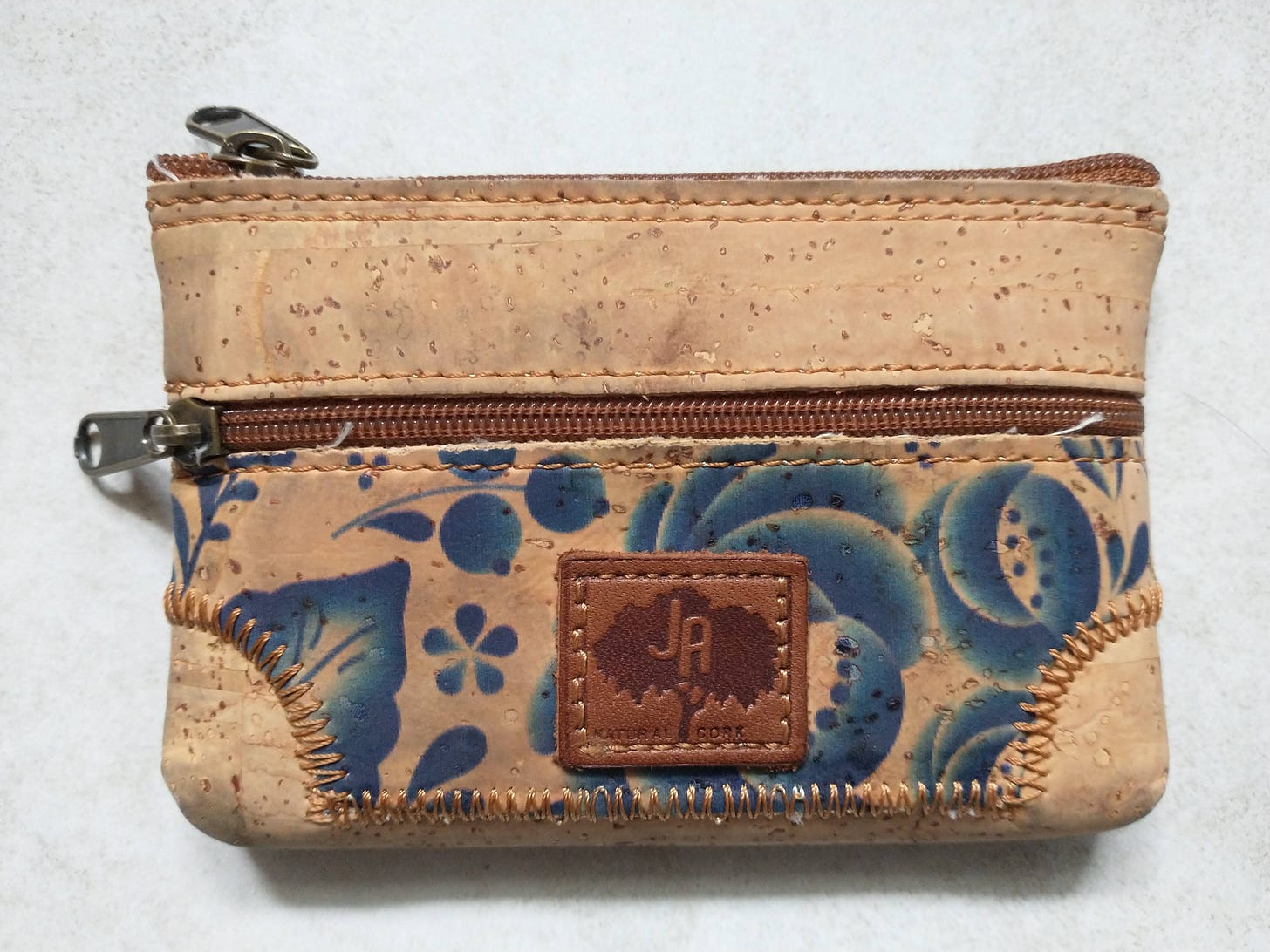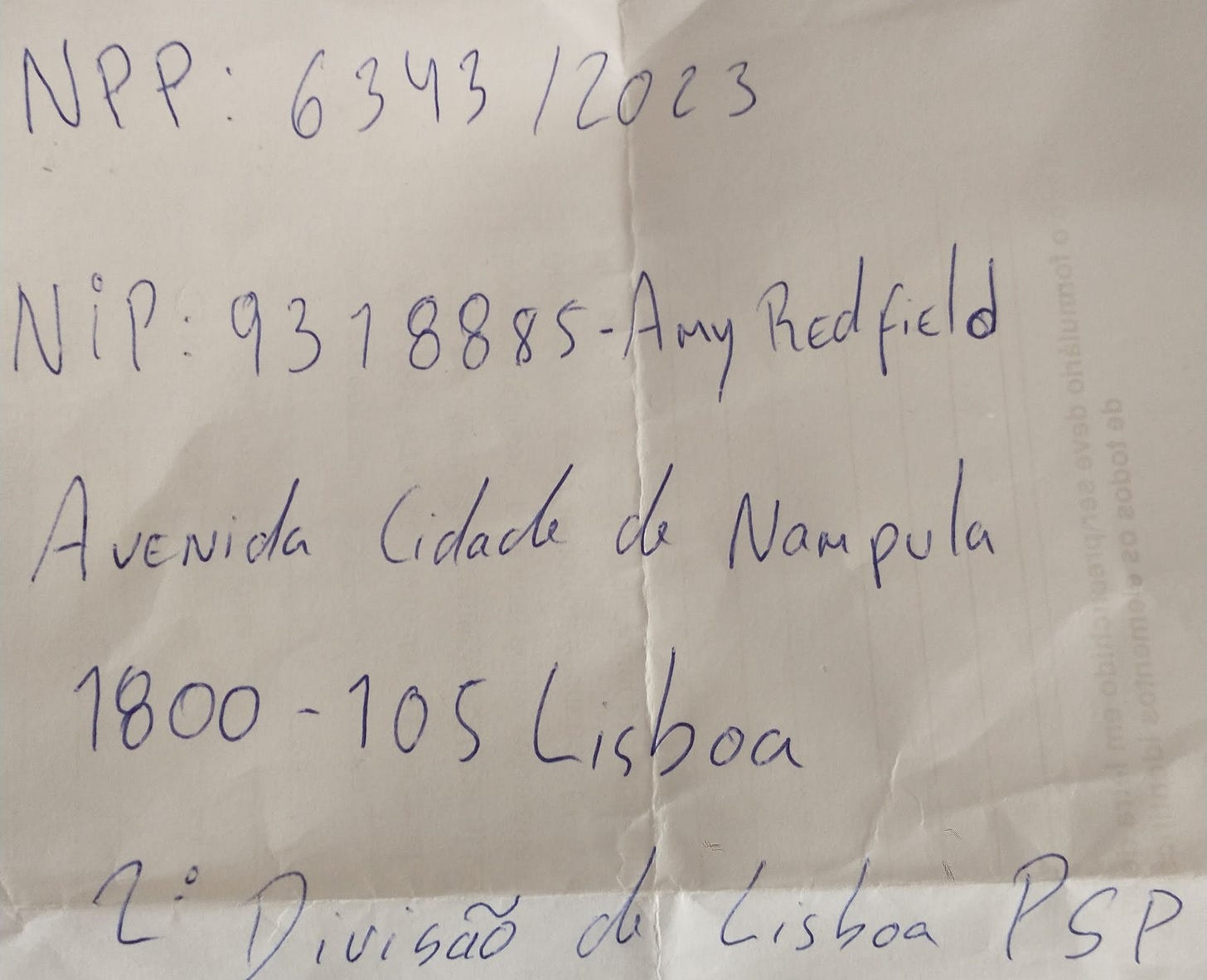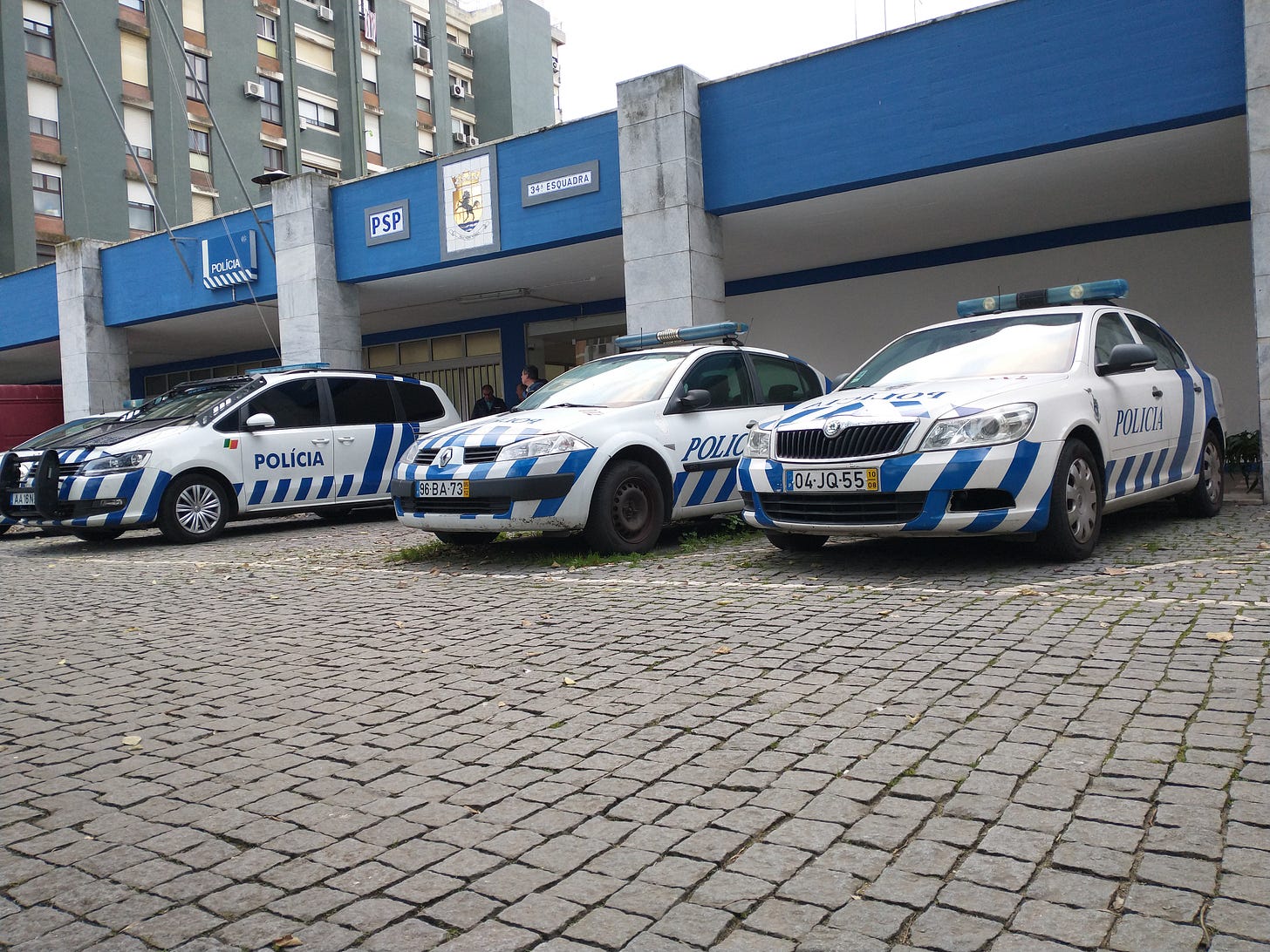Have you ever gone to catch a bus only to find the area is rife with bus stops and you’re not sure which is the one at which you need to wait? So you run to three or four shelters looking at route signs til you find the right spot only to discover the bus you need isn’t actually going where it’s supposed to go when it’s supposed to be going there? Which you find out because the driver tells you he’s done for the day before shutting the door in your face? By now, you’re going to be late for your appointment so you give up and call an Uber. And somewhere in the middle of this the strap on your brand new hand bag (maiden voyage, in fact) just comes apart turning the item that’s supposed to hang hands-free across the front of your body into something you need to actually carry?
It’s a flustering, frazzling experience. Given this state of. . . frazzlement? frazzleisciousness? frazzletude? it’s understandable that a little thing like a wallet can disappear.
That was Amy’s evening last Tuesday.

She (eventually) arrived home (she was on time . . . ish . . . call it Portuguese time . . . for her appointment) lighter by:
two viva viagem (Metro) cards (Why two? That’s a different, not quite as ridiculous story.),
a navegante card (for trains to Cascais and other places),
some euros (exactly how many is still in question),
a Pingo Doce grocery card
an MGEN health insurance card,
a bank debit card, and (wait for it)
her residency card. You know, the thing that says we’re legally allowed to be in the country.
There are a couple of interesting observations from that list, actually:
we both had a heck of a lot more stuff in our wallets when we lived in the US. If either of us had lost our wallets in St. Louis, we’d have had to
cancel two or three credit cards,
call the bank to get a new ATM card,
go to the DMV for a new driver license, and
who knows what else.
Our wallets are considerably thinner in Portugal than they were in the States.
What’s in your wallet?
there was nothing at all in the wallet that would allow a good Samaritan to contact us by phone or email. Our residency cards have our physical address on them but who’s going to show up at a stranger’s home without reaching out in some other way first?
How many of you have your contact information inside your wallet?
Naturally, of course, the first thing Amy did after scouring the waiting room at the doctor’s office was open the Uber app to call the driver. Who didn’t pick up. Fine. She’s busy driving. Don’t really want her answering the phone in traffic, right? Amy tried again after arriving home a couple hours later; same result. Only this time there was an option to indicate why she was calling (lost item) and a promise that if the driver didn’t respond in 24 hours, Amy could reach out to Uber for help.
That night, we walked Josie down to Restauradores and crisscrossed the myriad bus stops, scouring the ground, eyes peeled, hoping to locate the item. No luck. But Josie had a blast.
Twenty four hours later, Amy reached out to Uber for help. Uber emailed to say that if we didn’t hear from the driver in 24 hours, Amy should hit reply and let them know.
Another 24 hours, Amy hit reply and let them know she hadn’t heard from the driver.
The usual lost-wallet mayhem ensued - wait two weeks for new bank card or hope for Good Samaritan to pull through? Borrow 5 euro to cover our share of dinner (ugh) since we didn’t have enough cash. Almost miss the Metro with the group because we had to buy (yet) a(nother) viva viagem card. (Turns out you can’t bip a card at the turnstile then pass it back to someone else for them to use seconds later. Who knew?)
Mostly though, fret about the residency card. First step in getting a new one turns out to be report the lost item to the police (“Hi, I was stupid and lost my card . . .”). Then we’d need to send an email to SEF (Portuguese immigration services) with the police report attached requesting an emergency appointment. The next steps were unclear both in specifics and duration but the advice we received was that we’d need “bucketfulls of patience.”
Friday morning we headed down to the tourist police station at Restauradores. We chose that station because we figured there was a better chance of getting an officer who spoke English and there was a possibility that if someone had found the wallet at a nearby bus stop they’d have brought it there. Also, it’s the only police station we know in the area.
Officer Paulo (no relation to pharmacist Paulo . . . we think) was terrific. He was kind and non-judgmental and he speaks flawless English. It helped that we had scanned Amy’s residency card when we got it and could show him that copy. He tapped away at his keyboard for a while then said, “I think I may have good news. Just a moment.” . . . “Yes, I have great news.”
The wallet, it seems, had been picked up by a nearby shop owner and brought to the very station we were sitting in! Hooray! And if we had gotten to the station a day earlier, we probably could have walked out with it. Apparently, though, after 48 hours or so, items are sent to a central lost and found depot. Where, exactly, the wallet was at that point was hard to tell. Paulo picked up his cellphone and made some calls. He made sure we had the right lost and found on our phone for us!
Turns out, lost and found is a bit of a hike. We didn’t have time to make it then as we had an appointment that afternoon. Paulo told us lost and found keeps “office hours” but we should be OK if we made it there by 17h (5 PM).
We got out of our appointment around 15h45, which left us with enough time to take a taxi to lost and found. Our terrific driver dropped us off around 16h30. Officer Paulo had mentioned there were multiple entrances to the police station and said we might have to ask around.
There wasn’t anyone to ask but a sign directed us down a flight of stairs and around the building. We wandered randomly into an office and asked the woman there (in Portuguese) where to go for lost and found. We followed her gestures (not understanding her reply) and ended up in front of a door. Just inside was a police officer sitting at a small desk talking on a telephone. He held up his hand as we entered and told us (in Portuguese) to wait outside the door, which we did. He showed no signs of finishing his call or acknowledging our existence any further so eventually we asked an officer standing outside where to go. He pointed us toward an adjacent building which turned out to be a small mercado. The people in that building pointed us back to the building we’d just left so we approached a group of officers who were standing around talking.
One of them pointed to a large building on the other side of the mercado and told us (in English) the office had closed at 16h. Then he spotted the piece of paper we were carrying and asked to see it. He took it and vanished into the door with the Telephone Officer. Eventually, he returned to say someone would be able to help us “soon” and gave us back our piece of paper. A few minutes later, Telephone Officer finished his call and wandered out for a cigarette break, never making eye contact or acknowledging our existence. We stood uncertainly, waiting for something to happen. A while later, a man carrying a computer walked out of another door and Telephone Officer looked at us and pointed to him.
We approached Computer Man who took our piece of paper and disappeared without a word. A few minutes later he returned, walking over to a group of officers who were standing around talking. He and a woman came to us and the woman explained (in English) that we would need to wait a while because a different man who needed to help us was busy. Did we have time? We did.
We sat down on a low retaining wall to wait. Eventually, Computer Man reappeared and waved us over to him indicating that we should follow him, which we did, through a series of narrow corridors and up a couple of flights of stairs to a locked door. He opened it to a small, cluttered room with a desk. He invited us to sit, which Amy did (there was only one chair) and he plopped himself down in front of the computer and started looking through a small raft of papers he was carrying. Moments later, he pulled out Amy’s wallet, opened it, and began inventorying the items inside!
Through a combination of DeepL translations, broken English, and even more broken Portuguese we learned that Officer Luis was a little surprised nobody from the tourism police station had called or emailed to let us know the wallet was there. (“Amy is in the system.”) When Scott asked if this office would have contacted us, he said yes. “Cuando?”, Scott responded. (When?) “Cuando?” he replied with an incredulous chuckle as he expanded his arms to indicated the vast array of boxes containing, presumably, other items that were also in need of attention. Probably would have been a while. As it was, we left with it just a short time later.
In the end, we were quite lucky in a few respects: someone turned in Amy’s wallet, the police officers were kind and helpful when they didn’t have to be, and we got it back after only a couple of hours of work and waiting. Though from what we’ve read, most of this “luck” was not necessarily unusual here in Portugal. Many posters to the various Facebook groups we follow share stories of people going out of their way to return lost items or to drop everything in order to help someone else solve a problem. We feel very fortunate to be here in Portugal.
That’s all for now.
Love from Lisbon,
Scott & Amy









What an adventure. I'm glad you got the wallet back. A question: Regarding the residency card, is it possible to carry around a copy and leave the original at home, or does it have to be the original?
I swear, you should be turning all of this into a script. Comedy or drama I'm not sure, but something!